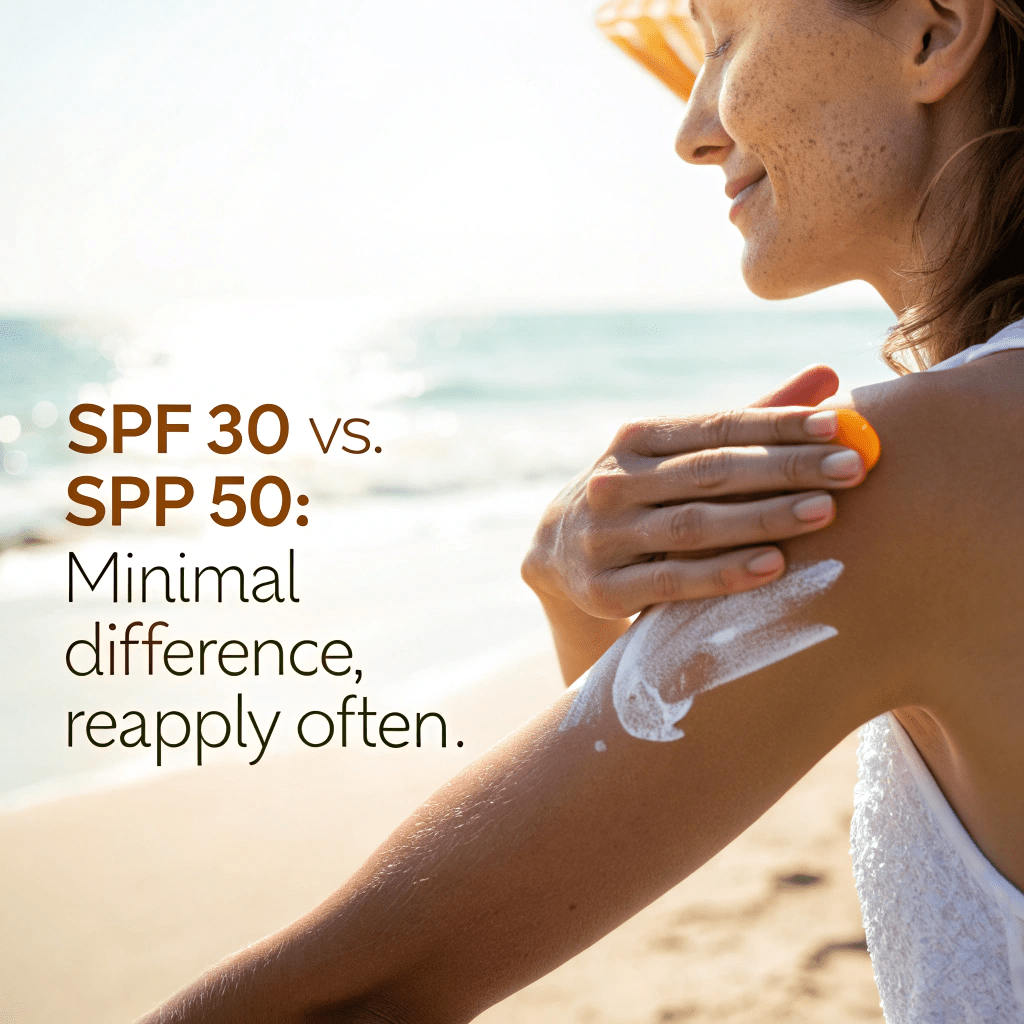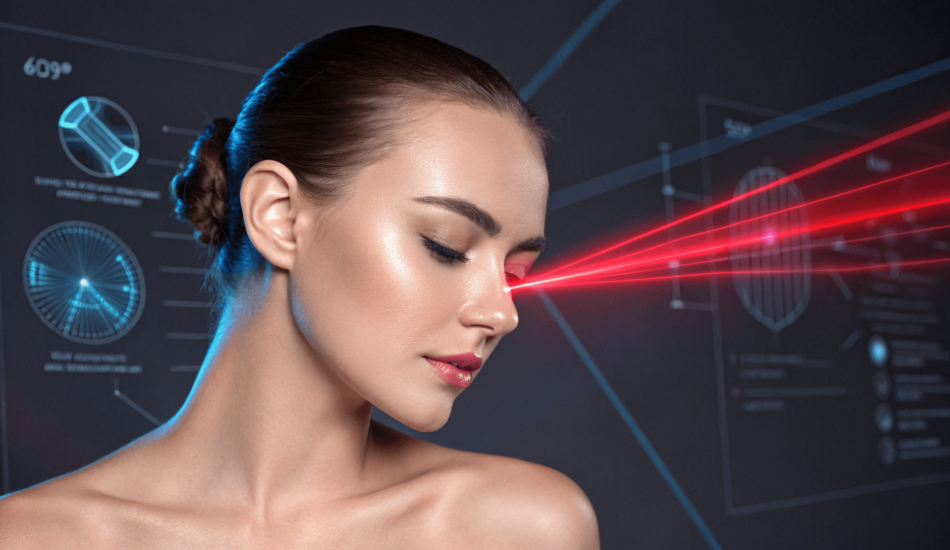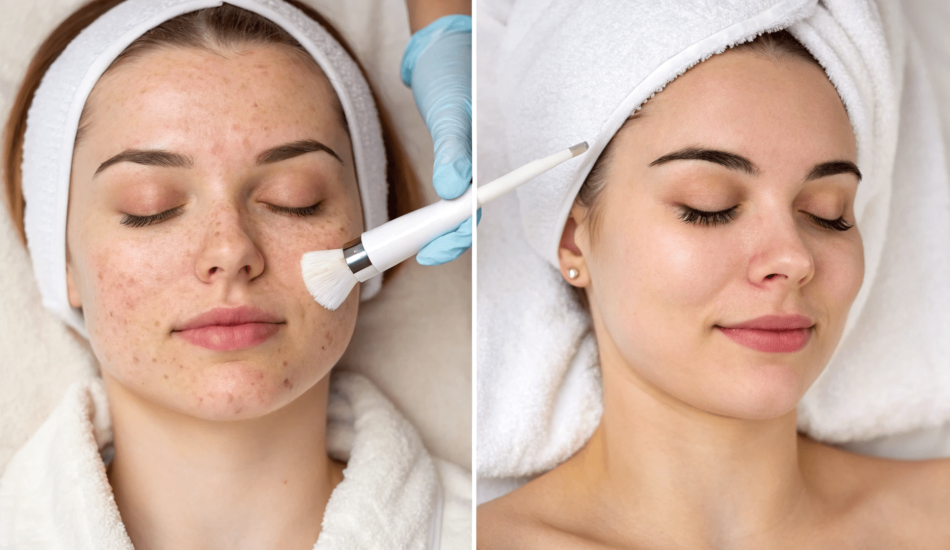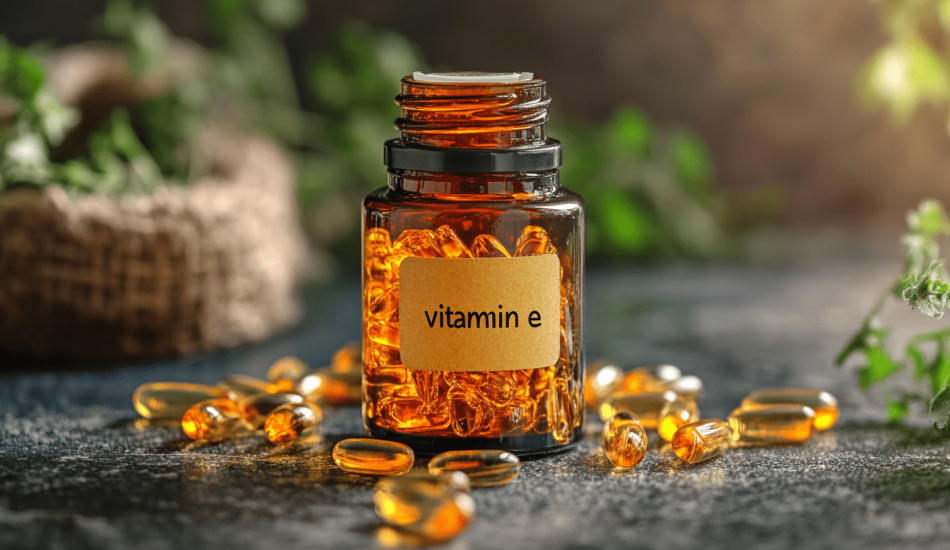
When it comes to sunscreen, myths are everywhere—just like UV rays on a sunny day. Ever heard someone say, “SPF 100 means all-day protection,” or, “You don’t need sunscreen indoors”? Yep, those are total myths. And while sunscreen might seem simple, understanding SPF and UV rays is key to keeping your skin safe. So, let’s clear the air and make sure you’re armed with the truth. Trust me; your skin will thank you.
Myth #1: “Higher SPF Means Better Protection”
The Truth

SPF (sun protection factor) isn’t a magic shield. While SPF 30 blocks about 97% of UVB rays, SPF 50 blocks only slightly more—around 98%. The difference isn’t as dramatic as it sounds. Plus, no SPF can block 100% of UV rays. Instead of chasing high numbers, reapply sunscreen every two hours and use the right amount (about a shot glass for your whole body). And yes, even if it’s SPF 100, it won’t last all day.
Myth #2: “I Don’t Need Sunscreen on Cloudy Days or Indoors”

The Truth
UV rays don’t care if it’s cloudy or if you’re binge-watching Netflix indoors. Up to 80% of UV rays can still penetrate clouds. Plus, UVA rays can sneak through windows. So, whether it’s overcast or you’re working near a sunny window, slap on that sunscreen. Your future self will thank you.
Myth #3: “Dark Skin Doesn’t Need Sunscreen”

The Truth
Melanin does provide some natural protection, but not enough to skip sunscreen altogether. People with darker skin tones can still experience sunburn, premature aging, and even skin cancer. Sunscreen is essential for everyone, no matter your skin tone. It’s the ultimate equalizer in the fight against UV damage.
Myth #4: “One Application Lasts All Day”
The Truth
If only life were that simple. Sweat, water, and just living your life can wear off sunscreen. That’s why dermatologists preach reapplication every two hours. And if you’re swimming or sweating, grab a water-resistant sunscreen and reapply even more frequently. The effort is worth it when it comes to protecting your skin.

How to Choose the Right Sunscreen
Now that we’ve busted the myths, let’s talk solutions. Look for a broad-spectrum sunscreen with at least SPF 30. Broad-spectrum means it protects against both UVA (aging) and UVB (burning) rays. And if you’re worried about white streaks, many sunscreens now come in invisible formulas that won’t leave you looking like a ghost.
Final Thoughts
Sunscreen isn’t just a summer fling; it’s a lifelong commitment. By separating fact from fiction, you can protect your skin from premature aging, sunburn, and even skin cancer. Got a sunscreen myth we didn’t cover? Drop it in the comments, and let’s debunk it together!




